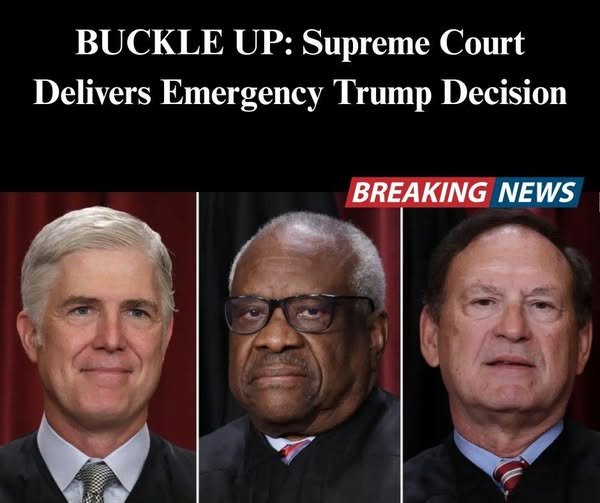On Tuesday, the U.S. Supreme Court allowed the Trump administration to retain several thousand probationary federal employees on the payroll while lower courts evaluate the legitimacy of the downsizing measures, representing another recent triumph for the White House.
This ruling reverses a previous decision by a lower court that mandated the reinstatement of over 16,000 probationary employees.
While the ruling does not provide a conclusive determination regarding the employees’ job security, it is expected to significantly affect both the workers and the agencies involved, as reported by the New York Times.
Justice Sonia Sotomayor expressed dissent without elaborating on her reasons. Justice Ketanji Brown Jackson contended that the court should not have addressed such a critical issue in the context of an emergency application. This order marks the latest Supreme Court success for the administration amid a series of executive actions taken by President Trump. However, it remains a provisional and technical decision, similar to previous rulings. The justices indicated that their order would remain in effect as the legal proceedings continue.
The case originated from a preliminary injunction issued last month by a federal judge in California, which required the administration to reinstate over 16,000 probationary employees dismissed from various departments, including Defense, Treasury, Agriculture, Energy, Veterans Affairs, and Interior.
In his ruling, Judge William H. Alsup of the Northern District of California acknowledged that “each federal agency has the statutory authority to hire and fire its employees, even on a large scale, subject to certain safeguards.” This marks the second occasion this week that the Supreme Court has favored the Trump administration.
Additionally, a federal judge who had prohibited the Trump administration from utilizing a 1798 wartime statute to expedite the deportation of Venezuelan nationals canceled a planned court hearing on Tuesday following the Supreme Court’s ruling in favor of the president.Last month, plaintiffs requested an emergency restraining order from the D.C. District Court to temporarily suspend the administration’s enforcement of the law. Judge Boasberg granted this request, acknowledging that the deportations could likely inflict imminent and “irreparable” harm on the migrants affected by the proposed timeline.
A federal appeals court later affirmed this ruling, placing Judge Boasberg in direct opposition to the Trump administration.
The restraining order from the lower court remained in effect until Monday night, when the Supreme Court issued an emergency ruling in favor of Trump.
Since its enactment by Congress 228 years ago, the Alien Enemies Act has been invoked only three times: during the War of 1812, World War I, and World War II.
Judge Boasberg was tasked with examining the Trump administration’s application of this statute to deport Venezuelan nationals. The Supreme Court’s 5-4 ruling established that migrants possess due process rights and the right to judicial review when facing deportation under this law.
The justices underscored that migrants are entitled to appear in court prior to deportation and must receive adequate notice regarding any intended removal proceedings under the Alien Enemies Act.
The majority opinion stated, “Detainees must be informed after the date of this order that they are subject to removal under the Act. This notice should be provided within a reasonable timeframe and in a manner that enables them to seek habeas relief in the appropriate venue before any removal takes place.”



